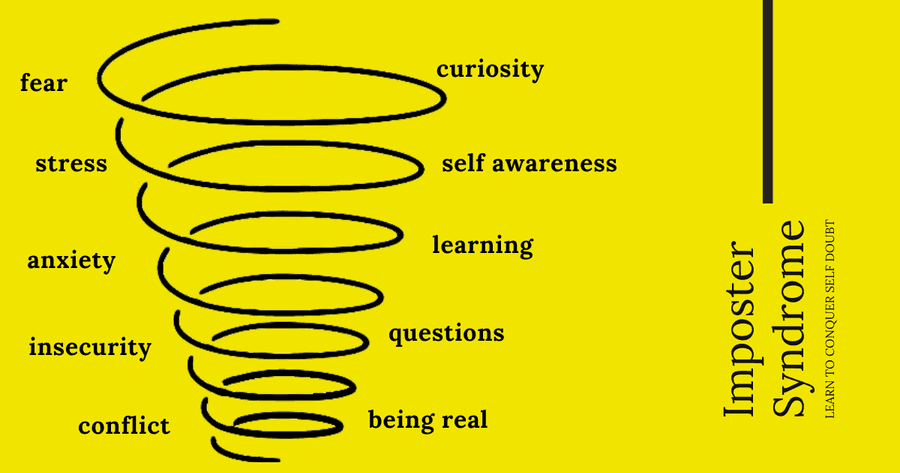Learn more about personaldevelopment with this collection
How to make good decisions
How to manage work stress
How to manage email effectively
Imposter Syndrome: Do you have it?
What is Imposter Syndrome?
Have you ever felt that you're just not enough? Even when there are evidences that they are not, but have you ever felt that your successes, was rather luck?
The imposter phenomenon refers to feelings of inadequacy, feeling like a fraud, attributing success to luck rather than skill and effort, and worrying about being found out. All these feelings occur in those with imposter phenomenon (or, syndrome) despite evidence of success.
Imposter syndrome, is not a syndrome, but rather, an experience! It happens with almost everyone at some point.
178
896 reads
Serious effects that Imposter Syndrome can cause?
As you might have thought, imposter syndrome can very well effect you emotionally. But that's not the only way it presens itself. It can also affect the way you approach your work.
People experiencing this also suffer through Unnecessary Perfectionism, leading to fear of failure, and expectations that can't be met. This, in turn, can lead to procrastination.
Not only that, a study of over 200 professionals at the University of Salzburg found those experiencing imposter phenomenon tended to be paid less, were less likely to be promoted, and felt less committed and satisfied at work.
159
632 reads
3 steps in getting over Imposter Syndrome!
It won't be easy, but will be worth it!
- Recognize unhealthy perfectionism: Signs are: Being extremely fearful of failure and criticism, constantly worried about making mistakes or disappointing people, or tending to brood over past mistakes. Slowly, work to reduce these.
- Realistically assess yourself: We have areas where we're quite smart and areas where we're not so smart. Write down the areas in which you're good, and ones in which work is needed.
- Express out: Talking to other people about their struggles can help prove that other people aren't perfect, and they too do make mistakes.
176
710 reads
CURATED BY
We are just another couple of engineering students who love to explore new ideas in the fields of Tech, Productivity, Self improvement & Entrepreneurship
More like this
Read & Learn
20x Faster
without
deepstash
with
deepstash
with
deepstash
Access to 200,000+ ideas
—
Access to the mobile app
—
Unlimited idea saving & library
—
—
Unlimited history
—
—
Unlimited listening to ideas
—
—
Downloading & offline access
—
—
Personalized recommendations
—
—
Supercharge your mind with one idea per day
Enter your email and spend 1 minute every day to learn something new.
I agree to receive email updates




